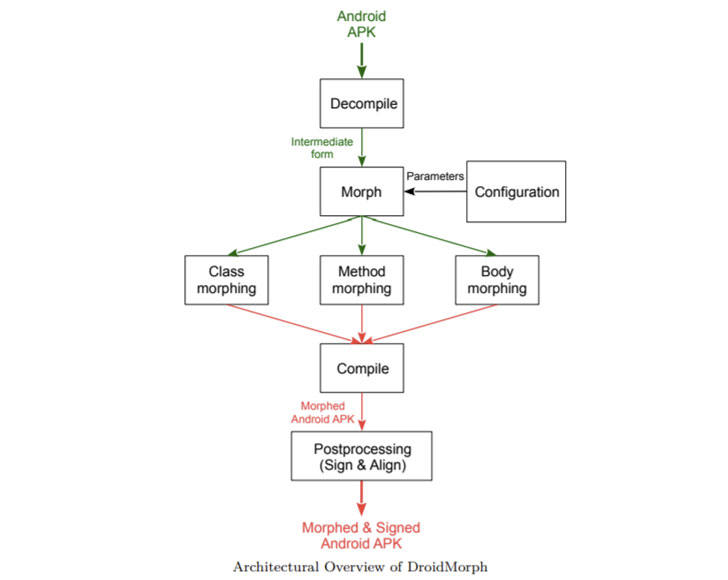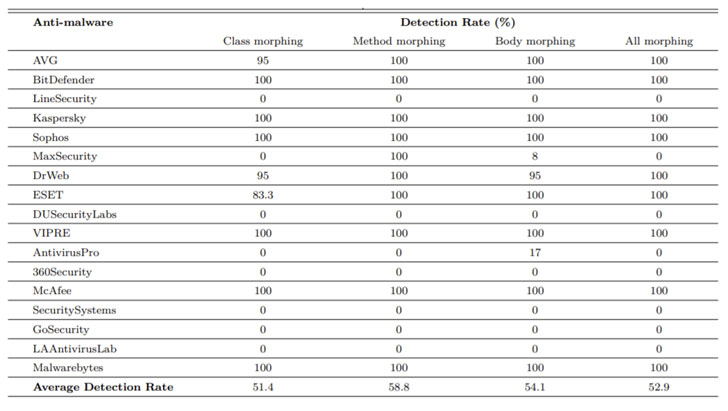DroidMorph Shows Popular Android Antivirus Fail To Detect Cloned Malicious Apps
A new research published by a group of academics has found that anti-virus programs for Android continue to remain vulnerable against different permutations of malware, in what could pose a serious risk as malicious actors evolve their toolsets to better evade analysis.
"Malware writers use stealthy mutations (morphing/obfuscations) to continuously develop malware clones, thwarting detection by signature based detectors," the researchers said. "This attack of clones seriously threatens all the mobile platforms, especially Android."
The findings were published in a study last week by researchers from Adana Science and Technology University, Turkey, and the National University of Science and Technology, Islamabad, Pakistan.
Unlike iOS, apps can be downloaded from third-party sources on Android devices, raising the possibility that unwitting users can install unverified and lookalike apps that clone a legitimate app's functionality but are built to trick targets into downloading apps laced with fraudulent code that are capable of stealing sensitive information.
What's more, malware authors can expand on this technique to develop multiple clones of the rogue software with varying levels of abstraction and obfuscation to disguise their true intent and slip through the defense barriers created by anti-malware engines.
To test and evaluate the resilience of commercially available anti-malware products against this attack, the researchers developed a tool called DroidMorph, which allows Android applications (APKs) to be "morphed" by decompiling the files to an intermediate form that's then modified and compiled to create clones, both benign and malware.
Morphing could be at different levels, the researchers noted, such as those that involve changing the class and method names in the source code or something non-trivial that could alter the execution flow of the program, including the call graph and the control-flow graph.
In a test conducted using 1,771 morphed APK variants generated through DroidMorph, the researchers found that 8 out of 17 leading commercial anti-malware programs failed to detect any of the cloned applications, with an average detection rate of 51.4% for class morphing, 58.8% for method morphing, and 54.1% for body morphing observed across all programs.
The anti-malware programs that were successfully bypassed include LineSecurity, MaxSecurity, DUSecurityLabs, AntivirusPro, 360Security, SecuritySystems, GoSecurity, and LAAntivirusLab.
As future work, the researchers outlined that they intend to add more obfuscations at different levels as well as enable morphing of metadata information such as permissions that are embedded in an APK file with an aim to bring down the detection rates.
Source: feedproxy.google.com
 Reviewed by Anonymous
on
3:14 AM
Rating:
Reviewed by Anonymous
on
3:14 AM
Rating:










